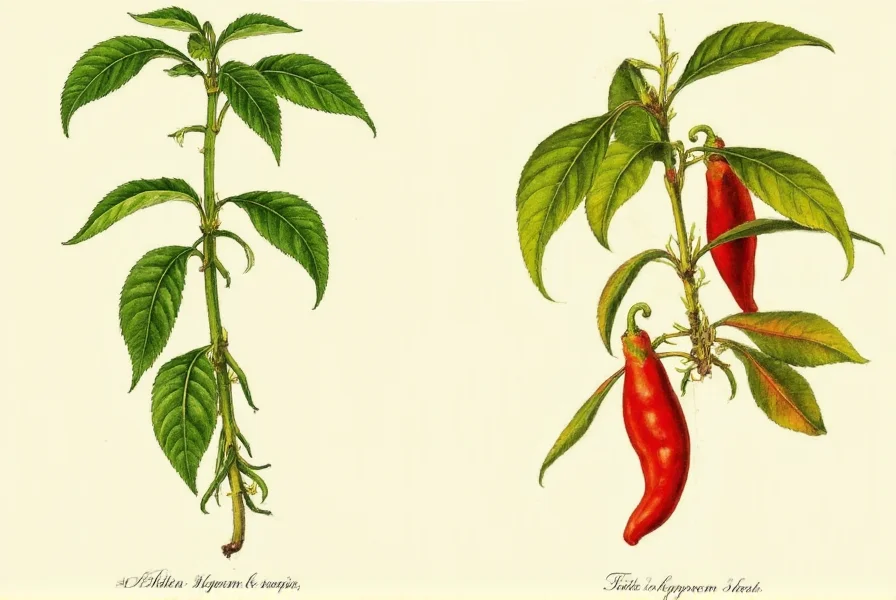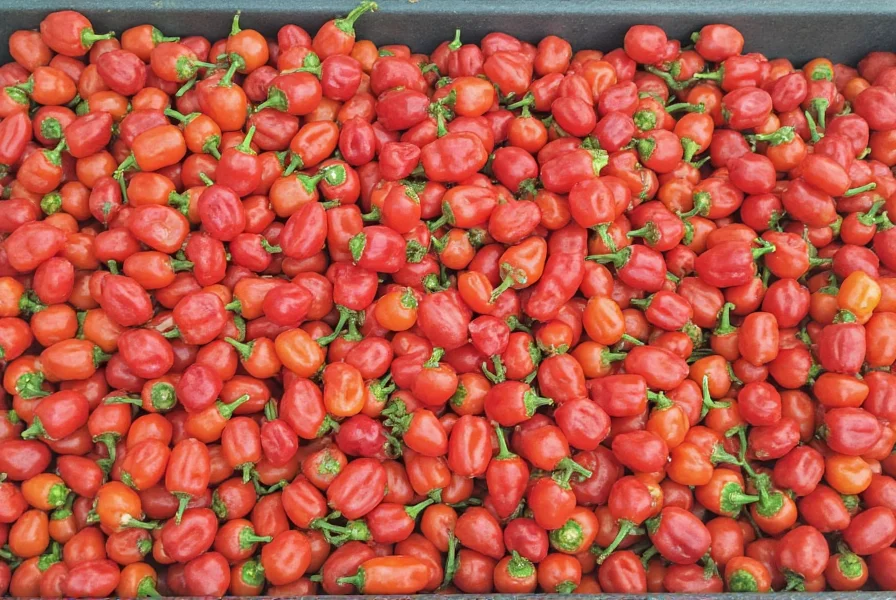When exploring pepper meaning, it's essential to understand this versatile term spans multiple botanical families and culinary applications. The word "pepper" creates frequent confusion because it refers to two completely different plant families that produce distinctly different products.
Etymology and Historical Context
The word "pepper" originates from the Sanskrit word "pippali," referring to long pepper (Piper longum). Ancient Romans adopted it as "piper," which evolved into the English "pepper." This linguistic journey reflects pepper's historical significance as a valuable trade commodity along ancient spice routes.
Black pepper (Piper nigrum) was so valuable in medieval Europe it was often used as currency, earning the nickname "black gold." The confusion with chili peppers began when Christopher Columbus mistakenly identified New World Capsicum plants as relatives of black pepper due to their similar pungency.
Types of Peppers: Understanding the Distinction
| Pepper Type | Botanical Family | Key Characteristics | Common Uses |
|---|---|---|---|
| Black Pepper | Piperaceae | Pungent, woody flavor; comes from dried berries | Universal seasoning, "king of spices" |
| White Pepper | Piperaceae | Milder, earthier than black pepper | Light-colored sauces, European cuisine |
| Chili Peppers | Solanaceae | Contains capsaicin; measured in Scoville units | Spicy dishes, hot sauces, pain relief |
| Bell Peppers | Solanaceae | Sweet, no capsaicin; multiple color varieties | Salads, stuffing, stir-fries |
Botanical Classification Explained
Understanding pepper meaning in botany reveals why these plants aren't related despite sharing a name:
Piper nigrum (true pepper) belongs to the Piperaceae family. These climbing vines produce berries that become black pepper when dried with the fruit intact, or white pepper when the outer layer is removed.
Capsicum species (chili and bell peppers) belong to the nightshade family (Solanaceae), which also includes tomatoes and potatoes. Their heat comes from capsaicin, while true pepper's pungency comes from piperine.

Culinary Applications Worldwide
The meaning of pepper in cooking varies significantly across cultures. In European cuisine, black pepper remains the default "pepper" used to season virtually everything. Indian cuisine features both black pepper and long pepper (pippali) in traditional spice blends.
Asian cuisines predominantly use chili peppers for heat, with regional varieties like Thai bird's eye chilies or Chinese doubanjiang. Meanwhile, bell peppers feature prominently in Mediterranean and Spanish cooking, particularly in dishes like pimientos de Padrón and piperade.
Pepper in Language and Culture
Beyond its literal pepper definition, the term appears in numerous idioms and expressions:
- "Pepper someone up" - to energize or stimulate
- "Peppering a conversation" - to intersperse frequently
- "Jalapeño popper" - a popular appetizer in American cuisine
- "Pepper the market" - historical term for widespread availability
In some contexts, "pepper" serves as slang. In 1920s American jazz culture, "pepper" described something exciting or energetic. Modern slang occasionally uses "pepper" to describe an attractive person, though this usage remains relatively uncommon.
Scientific and Medicinal Significance
Research into pepper meaning beyond seasoning reveals substantial health implications. Piperine in black pepper enhances nutrient absorption, particularly curcumin from turmeric. Chili peppers' capsaicin shows promise in pain management and metabolism regulation.
Historically, pepper served as a preservative before refrigeration. Its antimicrobial properties made it valuable for food safety, explaining its prominence in traditional meat-curing practices worldwide.
Common Misconceptions
Many people confuse the difference between black pepper and chili pepper due to naming conventions. Despite both providing heat, they're botanically unrelated and contain different active compounds. This confusion extends to language - in many European languages, chili peppers are called "red pepper" or similar terms.
Another frequent misunderstanding involves white pepper, which isn't a different plant but rather black pepper with the outer fruit layer removed. This processing creates a different flavor profile preferred in certain culinary applications where black specks would be undesirable.
Frequently Asked Questions
What is the original meaning of the word pepper?
The word "pepper" originates from the Sanskrit "pippali," referring to long pepper (Piper longum). Ancient Greeks adopted it as "peperi," and Romans as "piper," which evolved into the English "pepper." Originally, it referred only to Piper species before being mistakenly applied to New World chili peppers.
Why are chili peppers called peppers when they're not related to black pepper?
Christopher Columbus mistakenly identified New World Capsicum plants as relatives of black pepper due to their similar pungency. Though botanically unrelated (different plant families), the name "pepper" stuck for chili varieties in English and several other languages.
What's the difference between black pepper and white pepper?
Both come from the same plant (Piper nigrum). Black pepper consists of dried whole berries with the outer layer intact, giving it a stronger, more complex flavor. White pepper is produced by removing the outer fruit layer before drying, resulting in a milder, earthier taste preferred in light-colored dishes where black specks would be undesirable.
Is black pepper considered a spice or a herb?
Black pepper is classified as a spice, not a herb. Spices come from seeds, roots, bark, or fruits of plants, while herbs come from the leafy parts. As the dried fruit (berry) of the Piper nigrum vine, black pepper meets the definition of a spice and is often called the "king of spices" due to its historical value and universal culinary use.
What does 'pepper' mean in slang or informal usage?
In informal usage, "pepper" can mean to energize or stimulate someone ("pep someone up"). It also appears in expressions like "peppering a conversation" (frequently inserting something). Historically, in 1920s American jazz culture, "pepper" described something exciting. Occasionally, it's used as slang for an attractive person, though this usage is relatively uncommon today.











 浙公网安备
33010002000092号
浙公网安备
33010002000092号 浙B2-20120091-4
浙B2-20120091-4